Dr. Alexander Vaccaro is our PA Surgeon In the Spotlight!
United Nations Border Relief Operation – Thailand-Cambodia 1987
Border relief operations in this region of the world were founded in 1979 by 4 agencies (COERR, Médecins Sans Frontières, Youth With A Mission, American Refugee Committee) for refugees affected by the warfare along the Thai-Cambodian border. As a neutral humanitarian operation, UMBRO managed distribution of basic humanitarian supplies (e.g., water, blankets, cooking needs, mosquito nets, etc.), provided weekly food rations (1-week ration = 7kg rice, 500g vegetable, 500g salted fish), maintained a central border pharmacy, facilitated human rights information and landmine awareness, established security and protection forces, and assisted in support for social service facilities. Among the healthcare services, there were 8 camps. I worked with other American volunteers from Georgetown University at Site 2, the largest refugee camp. This camp took care of 130,000 civilians and 30,000 Khmer fighters. Site 2 had four thatched-roof bamboo hospitals and 8 outpatient facilities that managed 600 patients per day. Without electricity, running water, or well access, the hospital had 90 inpatient beds and was managed by a team of 1-2 physicians and 3-4 nurses or medics. The annual budget for each refugee was ~7 USD for 1° medication (anti-parasitic/malarial/TB, lidocaine, etc.) and 3 X-rays per refugee/year.
A notable long-lasting memory of this mission was my first hand experience of contracting Dengue fever after a mosquito bite. Since my days at the camp, I have traveled back to Thailand and witnessed first hand the resiliency of the societies affected by the atrocities of war. Their will to rebuild their community and trust among themselves is inspiring. AAOS
Recently, the AAOS registry department raised funds in support of the Leukemia & Lymphoma Society’s Light the Night event. To promote the dissemination of musculoskeletal knowledge, improve patient outcomes and safety, and promote best clinical practice, the AAOS has invested heavily in registry development, collecting data on over one million joint replacement procedures thus far in the American Joint Replacement Registry. Since 2018, four new registries (the Musculoskeletal Tumor Registry, Shoulder & Elbow Registry, American Spine Registry, and the Fracture & Trauma Registry) have been established to improve orthopaedic care through the collection, analysis, and reporting of actionable data. In 2020, the AAOS partnered with the Centers for Medicare & Medicaid Services. This data will be integrated into the new Alternative Quality Measures Set to promote value-based care and ensure payment models can guide decision-making. Catholic Foundation of Greater PhiladelphiaDick Clark, a former pharmaceutical CEO, Monsignor Francis Beach, a priest at St. Jude Church and Shrine in Chalfont, PA, and former Archbishop of Philadelphia Charles Chaput had a vision to bring together like-minded individuals with a passion for giving to the underserved in the Philadelphia region. This resulted in the creation of the Catholic Foundation of Greater Philadelphia, of which I am a board member. The Catholic Foundation of Greater Philadelphia (CFGP) is an independent, nonprofit community foundation committed to growing philanthropy according to the Catholic faith’s teachings of service. Its mission is to meet the needs of the underserved within the Philadelphia community. The CFGP ensures an investment in the future of equality, diversity, and protection from hunger and homelessness in our region.
The CFGP’s nonprofit development consulting services raises over $10M annually for the Catholic Charities Appeal (CCA) of the Archdiocese of Philadelphia. Funds raised for the CCA support over 180 beneficiaries, including but not limited to educational organizations, social services, and local mission activities. As part of the consulting work for the CCA, CFGP created a special outreach to support Nutritional Development Services (NDS) and their Community Food Program. NDS is a CCA beneficiary with over 50 emergency food sites. This special outreach has been in effect for the last 7 years, consistently raising more than $300,000 annually for NDS. As a response to the COVID-19 pandemic, CFGP established the Emergency Relief Fund (ERF) to address the immediate needs of organizations impacted by the pandemic. All funds raised through the ERF benefit the five-county area food pantries of Catholic Social Services. To date, the ERF has raised nearly $285,000. In Fiscal Year 2020, CFGP distributed nearly $900,000 from its charitable funds to essential needs organizations in the region. Each of the benefiting organizations works to find new approaches to end hunger, shelter the homeless, offer permanent housing, and bring opportunities to those who are struggling. |

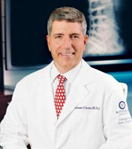 My passion in life outside of my family is my dedication to those less fortunate. This passion, combined with a sense of adventure, the love of medicine, and the ability to give back, has led me along a path of volunteerism.
My passion in life outside of my family is my dedication to those less fortunate. This passion, combined with a sense of adventure, the love of medicine, and the ability to give back, has led me along a path of volunteerism. 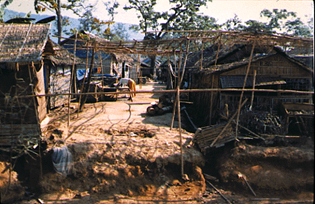
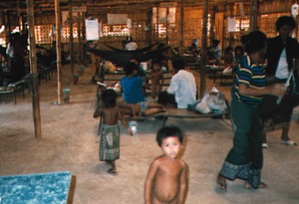
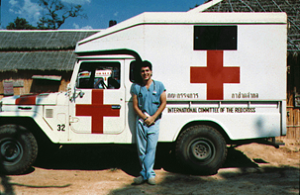
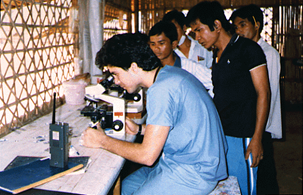
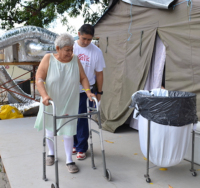 With more than 39,000 members, the American Academy of Orthopaedic Surgeons (AAOS) is the world’s largest medical association of musculoskeletal specialists. As a member of the Board of Directors, the Board’s goals are to facilitate equal access to quality healthcare for all patients, oversee the effort to advocate for the advancement of musculoskeletal health, provide access to high quality comprehensive educational opportunities, and work with other medical societies to advance evidence-based research to improve patient care.
With more than 39,000 members, the American Academy of Orthopaedic Surgeons (AAOS) is the world’s largest medical association of musculoskeletal specialists. As a member of the Board of Directors, the Board’s goals are to facilitate equal access to quality healthcare for all patients, oversee the effort to advocate for the advancement of musculoskeletal health, provide access to high quality comprehensive educational opportunities, and work with other medical societies to advance evidence-based research to improve patient care.